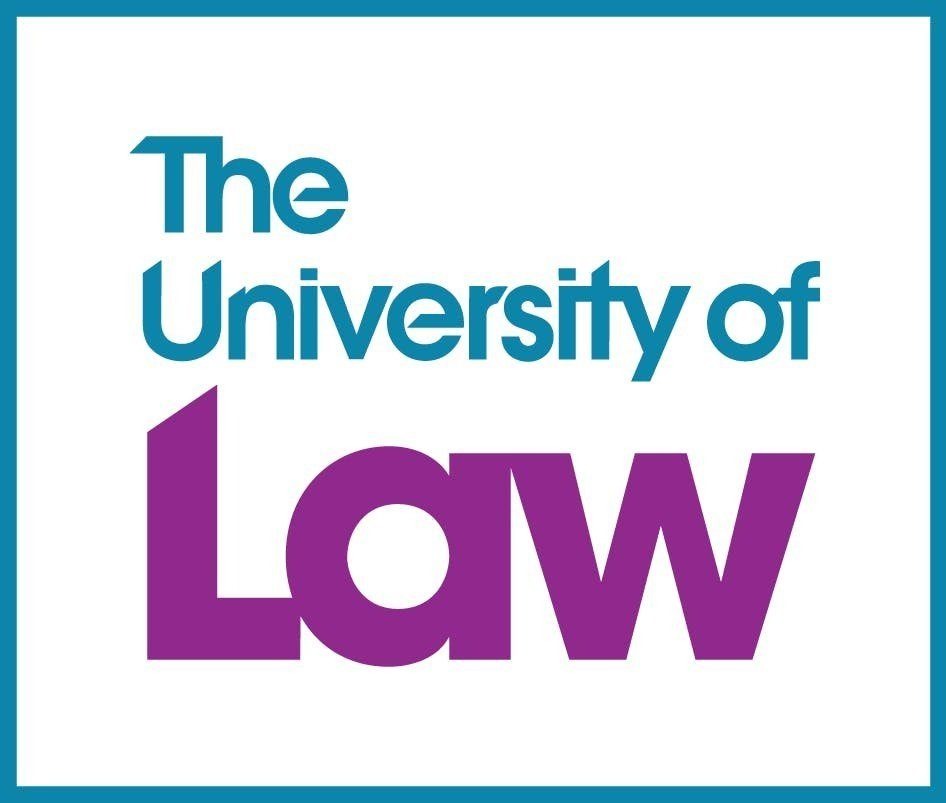Introduction
When Sabine Baring-Gould wrote of the spirit of Old Crockern (variously described as either the God or spectral protector of Dartmoor) driving a farmer to ruin after he moved from Manchester and attempted to enclose a section of the Moor for his own benefit,[1] it is unlikely that he could have imagined protestors would be invoking the same spirit over a century later, in response to a High Court ruling. Unfortunately for those who gathered in Cornwood last month to express dismay at the judgement in Darwall v Dartmoor National Park Authority,[2] relief was not forthcoming in the form of either spiritual retribution, or a favourable decision from the Chancery Division. The judgement of the Court held that the defendant’s interpretation of the Dartmoor Commons Act 1985 as permitting wild camping was incorrect. It would seem, for the time being, that the only way to enjoy wild camping on Dartmoor (the last area in England and Wales in which such a right ostensibly existed), without permission from the landowner upon whose land a tent is pitched, will be through contractual agreements made between the National Park Authority and individual landholders.[3]
Whilst the case ultimately became what Gavin Bennison of Falcon Chambers described as ‘nothing more than judicial interpretation of the words of a statute,’[4] and may to those without a stake in the future of wild camping on Dartmoor seem esoteric, its political and social significance cannot be understated. Moreover, the questions that were both ruled on and avoided in the judgement are important (in equal parts) in the development (or restriction) of both a ‘right to roam,’ and the tools that the judiciary can legitimately employ when construing a contentious statute. An analysis (and critique) of the legal rationale behind the judgement, and an exploration of its place in the context of evolving views about land access, suggest that Darwall might eventually become more than a comparatively simple private law dispute.
The Legal Background
Dartmoor sits (somewhat awkwardly) at the confluence of various statutory regimes established to govern access to England’s countryside. Most significant in the instant case were the National Parks Act 1949,[5] the Dartmoor Commons Act 1985[6] and the Countryside and Rights of Way Act 2000 (CROWA).
Part V of the 1949 Act permitted state authorities to enter ‘access agreements’ with landowners, transferring responsibility for governance of the land to the relevant authority. Attached to land that became subject of such an agreement was a right of access for the public to engage in a range of leisure activities, [7] which in turn were limited by exceptions contained in Schedule 2.[8] Camping, notably, was not included in the list of excepted activities.[9]
In 1989, the Dartmoor Commoners’ Council, under Section 11 of the Commons Act and Section 90 of the 1949 Act, promulgated byelaws which permitted campers to spend no more than two nights on ‘access land.’[10] The access land in question was the commons of Dartmoor, as contained in Section 10(1) of the Commons Act, which stated:
‘Subject to the provisions of this Act and compliance with all rules, regulations or byelaws relating to the commons and for the time being in force, the public shall have a right of access to the commons on foot and on horseback for the purpose of open-air recreation.’
Section 10(3) of the Commons Act incorporates Schedule 2 of the 1949 Act, with the effect that the excepted activities[11] under the latter act also limit the access right conferred by Section 10(1) of the Commons Act.
Hence, a de facto right to wild camp on areas of the Moor designated as commons had existed since 1989, subject to the requirement that campers did not spend more than 2 consecutive nights in the same space. It is important here to note that wild camping is, both in the context of the case and in layperson’s terms, distinct from organised camping; the essence of wild camping is that campers should pitch their stand where they stand and leave no trace of their activity.[12]
Subsequently, however, the enactment of CROWA in 2000 established a right to access land described in the 1949 Act without the need for an access agreement between the local authority and the landowner. Schedule 2, notably, does not permit an individual to be on any land if he ‘engages […] in any organised games, or in camping.[13] What therefore emerges is a tension between the 1949 Act (and, consequently, the Commons Act) which seems to permit (or at least not expressly exclude) camping on ‘access land;’ and CROWA, which explicitly places camping outside the ambit of the right to access. Evidently, the National Park Authority favoured the prior interpretation, which served as the grounds for the promulgation of the relevant byelaw(s).
In 2022, the claimant, Alexander Darwall, sought declaratory relief in the form of a judgement by the Court that Section 10(1) did not confer a right to wild camp, and therefore the relevant byelaws governing wild camping did not give wild campers a prima facie right to camp overnight on privately-owned land without being considered trespassers. Darwall, owner of the 4,000-acre Blachford Estate on South Dartmoor, claimed that wild campers had interfered with his rights as a property owner, causing wildfires and poaching fish amongst other (alleged) disturbances.
The Judgement: Rationale and Analysis
Sir Julian Flaux, in deciding for the claimant, held that wild camping could not constitute ‘open air recreation’ for the purposes of Section 10(1), and, accordingly, on its proper construction, did not confer a right to wild camp without a landowner’s permission.[14] Flaux C opined that ‘the 1949 Act drew a clear distinction between the enjoyment of opportunities for open-air recreation [...] and facilities for that enjoyment. Section 12 [of the 1949 Act] treated camping as one of those facilities, not as itself open-air recreation.’[15] He further stated that the absence of camping on the list of exempted activities that could legally be enjoyed by the public on access land in the 1949 Act was immaterial, as the ‘act clearly did not confer a right to wild camp without permission on land the subject of an access agreement.’[16] This opinion derived from both the claimants’ assertion that the 1949 Act was targeted at solving the mischief of a lack of a right to roam (and not lack of a right to wild camp),[17] and the assertion that camping was deemed by the Act to be a means of facilitating the permitted activities, and not a permitted activity in its own right.
Whilst for the layperson or casual legal observer the judgement is ostensibly sound, it arguably elides the nuances of camping as a recreational activity on Dartmoor, and the provisions of the relevant statutes more generally. As Hugh Craddock asks, [why] ‘if camping were not a legitimate part of the right conferred by the 1949 Act, [would it have] needed to be dropped into the restrictions under the 2000 Act [?]’[18] Similarly, if camping were not intended to have been a right conveyed by an access agreement struck under the auspices of the 1949 Act, why was Schedule 2 incorporated unedited into the Commons Act? Although such questions could be explained through reference to the fact that the 1949 Act did not automatically confer a right to roam on access land to the public (rather, it relied on proprietary rights being signed away by the landowner) whilst CROWA did, this explanation is unsatisfactory, as Section 10(1) of the Commons Act crystallised the provisions of the 1949 into a prima facie right through its incorporation of Schedule 2.
The alternative explanation, that camping is a mere facility for giving effect to recreational activities forming the subject matter of a right, is also (respectfully) dubious. Whilst the 1949 Act referred to camping as such a facility, this was couched in the terms of permission for local planning authorities to make provision for designated campsites on National Park land.[19] Wild camping, by definition, is not camping undertaken on a designated campsite (which might include facilities for motorhomes and larger tents), but rather the decision to pitch a tent where one is stood and move on swiftly afterwards. Flaux C agreed with the claimant’s submission that ancillary rights to the right to roam across the Dartmoor commons might include the right to stop and picnic or enjoy nature.[20] It is unclear, therefore, why pitching a tent during a hike suddenly places a would-be wild camper outside the ambit of the rights conferred by the Commons Act; would a birdwatcher who sets up a tent and observes nature become a trespasser upon the erection of a temporary shelter? Such questions were not answered, and were arguably complicated, by Flaux C’s blunt assertion (without an accompanying explanation) that ‘well-publicised’ wild camping events (such as the Ten Tors Challenge) are inherently different from the case of a ‘casual backpacker’ who seeks to set up a tent when night falls.[21] Hopefully these points will be addressed in more detail upon appeal if the National Park Authority can raise the requisite funds.
Missed Opportunities?
As aforementioned, Darwall also (briefly) raised the issue of whether ‘settled practice’ is a legitimate tool to aid statutory interpretation. The defendant adduced evidence to suggest that wild camping without the need for permission from the landowner was a long-accepted practice on Dartmoor. Counsel for the National Park Authority relied on an obiter in Anglesey County Council v Welsh Ministers[22] which stated:
‘Where an Act has been interpreted in a particular way without dissent over a long period, those interested should be able to continue to order their affairs on that basis without risk of it being upset by a novel approach.’[23]
Ultimately, the argument that a tradition of wild camping should serve to give effect to the defendant’s interpretation of provision of the Commons Act was (disappointingly) abandoned by its lawyers; Flaux C did, however, state obiter that he would have agreed with the view of Lord Neuberger in R (on the application of ZH) v London Borough of Newham,[24] who stated:
‘I have even greater reservations about the so-called "customary meaning" rule. As just mentioned, a court should not lightly decide that a statute has a meaning which is different from that which the court believes that it has.’[25]
In any case, Flaux C did not consider either that Section 10(1) of the Commons Act conferred a right to wild camp or that sufficient evidence to support a longstanding tradition of wild camping on the Moors had been adduced,[26] and therefore the role of custom in judicial interpretation was not pronounced upon. It is not outlandish, therefore, to suggest that Darwall could have proved an important case in the development (or halting) of this nascent ‘customary meaning’ rule, and that any future appeal might force a ruling on the legitimacy of settled practice in statutory construction.
Conclusion
Though Bennison’s claim that Darwall was nothing more than a routine private law dispute is ultimately correct, its social and political significance far outstrips its current legal magnitude. Darwall’s decision to challenge the byelaws sparked a wave of protests ranging from indignant hikes across Dartmoor, to demonstrations outside the Royal Courts of Justice;[27] the judgement itself incited further action, including a ceremonial summoning of Old Crockern to defend the Moor. What might be seen by some as nothing more than sabre-rattling by ‘crusties’[28] belies the awkward truth for landowners, which is that the public appetite for access to green spaces has been steadily increasing since the first Covid lockdown.[29] As the National Park Authority explores its legal options,[30] various protest groups prepare themselves for further peaceful (and potentially non-peaceful protest) and the Labour Party pledges to reverse the decision and enact a new ‘right to roam’ act (building on a promise made at their last Conference),[31] it is feasible to suggest that Darwall may just be the beginning of a protracted legal and political battle between outdoorsmen and individual landowners
[1] Sabine Baring-Gould, A Book of the West; Being an Introduction to Devon and Cornwall (Meuthen 1899).
[2] Darwall v Dartmoor National Park Authority [2023] EWHC 35 (Ch).
[3] Helena Horton, ‘Dartmoor national park to pay landowners to allow wild camping’ (The Guardian, 19 Jan 2023) <https://www.theguardian.com/environment/2023/jan/19/dartmoor-national-park-to-pay-landowners-to-allow-wild-camping> accessed 12 Feb 2023.
[4] Gavin Bennison, ‘Wild-camping on Dartmoor: a note on the legal background to Darwall v Dartmoor National Park Authority [2023] EWHC 35 (Ch)’ (Falcon Chambers, 16 Jan 2023) <https://www.falcon-chambers.com/publications/articles/wild-camping-on-dartmoor-a-note-on-the-legal-background-to-darwall-v-dartmoor-national-park-authority-2023-ewhc-35-ch> accessed 16 Jan 2023.
[5] Herein ‘the 1949 Act.’
[6] Herein ‘the Commons Act.’
[7] National Parks and Access to the Countryside Act 1949 s 60(1).
[8] ibid, Sch 2 para 1.
[9] Ibid.
[10] Reproduced in full in n 2 at [5].
[11] See, generally, n 8.
[12] Carys Matthews, ‘Beginner's guide to wild camping in the UK: law, where to camp and kit’ (Countryfile, 31 Jan 2023) <https://www.countryfile.com/uk-travel/holiday-ideas/a-beginners-guide-to-wild-camping/> accessed 13 Jan 2023.
[13] Countryside and Rights of Way Act 2000 Sch 2 para 1 ss 1(s).
[14] n 2 at [83]
[15] ibid at [78]
[16] n 14
[17] ibid at [41]
[18] Hugh Craddock, ‘Not wild about camping’ (PannageMan, accessed 14 Jan 2023) <https://pannageman.craddocks.co.uk/2023/01/14/not-wild-about-camping/> accessed 12 Feb 2023
[19] n 7, s 12(1)
[20] n 15
[21] ibid at [90]
[22] EWCA Civ 94; [2010] QB 163.
[23] ibid at [43].
[24] UKSC 62; [2015] AC 1259.
[25] ibid at [95].
[26] n 2 at [91],
[27] Helena Horton and Tom Wall, ‘High court to rule on attempt to ban wild camping on Dartmoor’ (The Guardian, 12 Dec 2022) <https://www.theguardian.com/uk-news/2022/dec/12/high-court-to-rule-on-attempt-to-ban-wild-camping-on-dartmoor> accessed 13 Feb 2022.
[28] Miles Ellingham, ‘A wild day on Dartmoor- joining the ramblers’ rebellion’ (Financial Times, 27 Jan 2023) <https://www.ft.com/content/90c54da3-4bb2-41c5-bf66-4e47f44fd1c5> accessed 28 Jan 2023
[29] Office for National Statistics, ‘How has lockdown changed our relationship with nature?’ (ONS, 2021)
<https://www.ons.gov.uk/economy/environmentalaccounts/articles/howhaslockdownchangedourrelationship withnature/2021-04-26>> accessed 6 Nov 2022.
[30] Helena Horton, ‘Dartmoor park launches attempt to appeal against wild camping ruling’ (The Guardian, 27 Jan 2023) <https://www.theguardian.com/environment/2023/jan/27/dartmoor-national-park-wild-camping-seeks-permission-appeal> accessed 28 Jan 2023.
[31] Labour Press Office, ‘Jim McMahon Conference Speech’ (Labour, 27 September 2022) <https://labour.org.uk/press/jim-mcmahon-conference-speech/> accessed 13 Feb 2023.
















